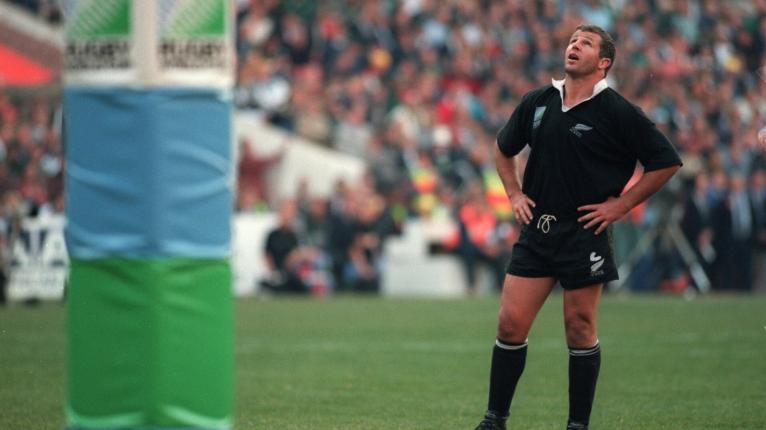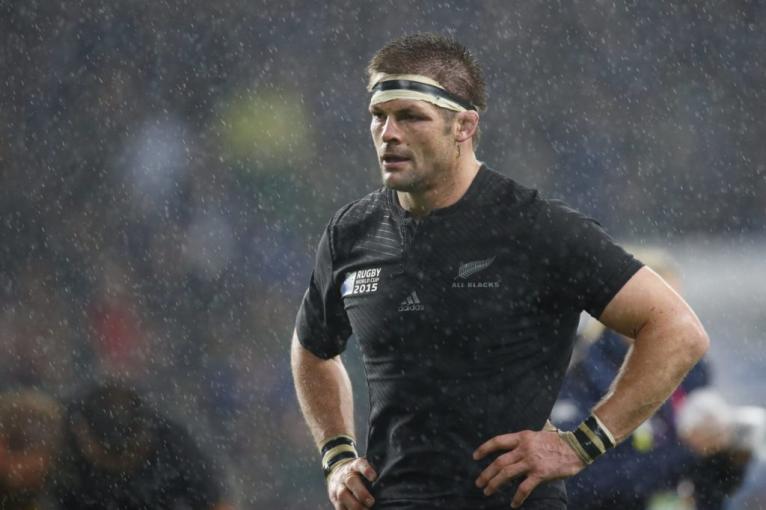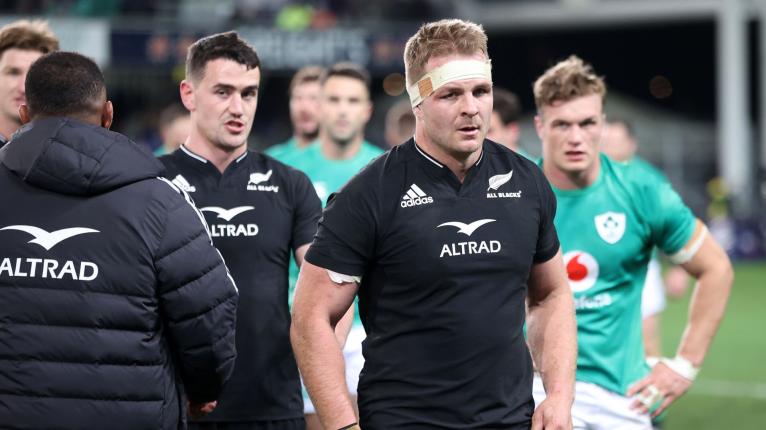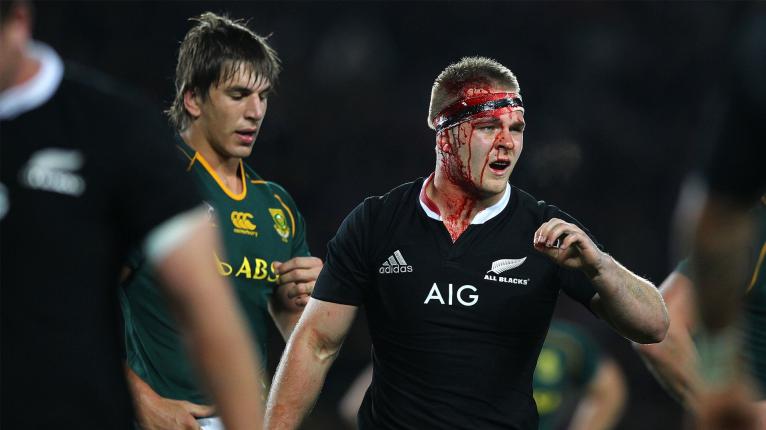Sam Cane is not the first and will unlikely be the last All Blacks captain to find himself facing intense public scrutiny and daily questions about whether he’s the right man to lead the team.
Plenty of All Blacks captains have been here before and the way out of the hole is maybe not simple, but it is simple to understand.
Sean Fitzpatrick was the first, or at least the first modern captain, to get what the gig was really all about.
His route to the captaincy had been unusual to say the least. He’d been the All Blacks’ first choice hooker from 1986 to the 1991 World Cup. But when the team was dumped out of the semi-final and forced to make a coaching change in 1992, Fitzpatrick suddenly found himself on the outer.
He discovered this when new coach Laurie Mains rang him mid-way through the season and asked if he still wanted to be an All Black.

When Fitzpatrick said yes, Mains replied: “Well you are not going to be.”
“He said I was arrogant,” Fitzpatrick revealed in the book, Captain’s Run. “And the thing that hurt me most of all was that he said, ‘You’ve lost respect for the All Blacks jersey’.”
When Fitzpatrick thought about it, he realised Mains was right and so he became determined to grab the lifeline that Mains had thrown him at the end of the conversation when he told him that if he got himself fitter, he’d be given a place in the Possibles team in the All Blacks trial.
Mains was true to his word, but Fitzpatrick still didn’t believe he had any hope of making it back into a team that everyone knew was going to be captained by Otago’s Mike Brewer. That was until Brewer was badly injured in the closing minutes of the trial and had to be carried off – leaving Fitzpatrick, for a brief second, to wonder who was going to be captain in place of the Otago flanker.
At the after-match function, it took an age for the team to be announced. There was a delay of almost two hours and when the names were read out, Fitzpatrick wasn’t only in the team, he was captain.
When Fitzpatrick explained that he was hating being in the new role, Sturgeon told him captaincy was simple – just play well and everyone will respect you.
He was stunned and so when he approached Earle Kirton, the independent selector as to what the hold-up had been, he was told that Mains had taken an age to be convinced that Fitzpatrick was the right choice to lead the All Blacks.
That intel riddled Fitzpatrick with doubt and when the team began the year with a home series against a World XV to mark the centenary of New Zealand Rugby, the new skipper was unhappy and out of sorts.
He didn’t feel like he had the respect of his peers, many he didn’t know and many who he felt didn’t want him to be captain – and he certainly didn’t feel he had the backing of his coach.
As he sat glumly in his hotel room in Wellington ahead of the second test, team manager John Sturgeon popped in for a cup of tea.
When Fitzpatrick explained that he was hating being in the new role, Sturgeon told him captaincy was simple – just play well and everyone will respect you. That was it, captaincy is about how you play and if you get that bit right, prove you are worthy of your spot, and ideally the best player in the team, the rest is easy.

It was advice that Fitzpatrick passed on to Richie McCaw and advice that came in handy after the 2007 World Cup. The All Blacks crashed out in the quarter-final and McCaw’s leadership was put under intense public and media scrutiny.
At one point, the great man even felt like chucking it all in, until he thought better of it and decided if he was going to be captain, he was going to be the best captain he could be.
And so he reverted to that sage piece of advice about building everything around his form, which he unquestionably did. He became the greatest captain the All Blacks have ever had, but so too did he become the greatest openside flanker they have ever had, if not the greatest player in their history.
As he said of his dramatically improved leadership in late 2008: “It helps that when you try a few things and they come off, you grow in confidence. But the thing you have to do as captain is perform. It depends on the type of leadership you are after, but I believe that if you are performing to a high standard then the other stuff, the peripheral stuff, will all follow.”
Which takes us to Cane, the incumbent captain and a man under siege. The critics have been piling in. Throughout the series against Ireland, there were commentators – media and former players – all saying that Cane was no longer the best seven in the country and not the right choice to lead the team as a result.
Cane, is according to some, the third-best flanker in the country and unfortunately for him, he played a little like that at times during the series against Ireland.
He enjoyed a great season in 2020 when his form was as good as it had ever been and he was named New Zealand Player of the Year. It was simple that year – he played well, so he led well.
But he missed most of 2021 with injury and hasn’t yet found the same sort of form in 2022 that he had in 2020. Also, Dalton Papalii has come of age as an openside and Ardie Savea, who despite playing No 8 for the All Blacks, is in fact an openside, has again been outstanding.
Cane, is according to some, the third-best flanker in the country and unfortunately for him, he played a little like that at times during the series against Ireland.
Some of his tackling was outstanding, but he was caught out of position a few times, conceded a couple of needless penalties and dropped the ball at critical moments.

In the second test, Ireland flanker Peter O’Mahony, during a bit of push and shove, told Cane he was a not-so-good version of McCaw – a line that went viral, mostly because its tone and timing tapped into the public mood.
It also said an enormous amount that with 15 minutes of the third test to go and the series in the balance, head coach Ian Foster took Cane off. It was a sign that even the coach was wobbling – losing his faith in his skipper and so it wasn’t such a huge surprise when the All Blacks landed in South Africa, that they discovered the critics there were just as sceptical about Cane.
“If the captain is battling a little bit as a player, the other players can’t help but look around and think we could be better if someone else was there,” former Springbok Joel Stransky said.
“He is coming back from a bad injury and trying to find that form again – but that’s where he finds himself. If you are playing against South Africa you want the best 15 on the field, and I’m not sure he’s quite there at the moment.
“It’s tough, the self-belief and momentum is a challenge, you’ve lost a couple of assistant coaches, the captain is maybe there, maybe not – with a bit of indecision.”
The best thing I’ve found is not to engage in any articles or read stuff online and focus on your close friends and teammates
Sam Cane
Stansky’s comments were fair enough. Cane has looked indecisive at times and his team needs him to find a way to recover his best form and to do so quickly.
When Cane is at his best he not only tackles with a vengeance, he wins turnovers – not prolifically so much as critically – and most importantly, as he showed in 2020, he can be a damaging ball carrier in the wider parts of the field.
At his best, Cane uses deft footwork and a strong fend to beat defenders and at he looks like a traditional ball-playing/ball-winning number seven. He needs to get his confidence back and his hands on the ball more.
And the good news, at least, is that he’s blocking out all the external noise. “The best thing I’ve found is not to engage in any articles or read stuff online and focus on your close friends and teammates,” he said on the Tuesday before the All Blacks critical first test against South Africa in Mbombela.

“As long as they’ve got your back; they believe in you and you believe in yourself then you’re in a pretty good spot.
“It’s probably harder sometimes on friends and family but I’ve been all good. When we come in and get into our work it’s almost like we’re in our own little bubble.
“Whenever you don’t get a result you look yourself in the mirror and see how you fronted up. There’s been a few tweaks within the coaching staff which will hopefully help but, without doubt, a few of us need to be stepping up on the field in the big moments.”
His mind seems to be in the right place and his strategy of shutting himself off from the outside to focus only on the voices that matter, is in line with the way Fitzpatrick and McCaw went about their work. But he actually needs to deliver something tangible and obvious in the series against the Boks.
He needs to find his best form in Mbombela and retain it at Ellis Park and be the front-of-house leader the All Blacks have been missing so far in 2022.
He doesn’t need to be a great captain to survive, but he does need to be a great player.



I’m a die hard ABs fan all the way from the US, and I’ve been watching the ABs for as long as I can remember. These past couple of years, watching the ABs has just lost a lil bit of that excitement and awe. Unfortunately for Cane, I just don’t see him performing well anymore and that maybe that’s all he’ll ever be, a good All black.. he’s down on confidence and form. I’m not one to kick a man when he’s down but he’s had 3 test matches to show us what he’s made of and has disappointed me so far… In rugby not all things will go your way and you need a leader that will carry the team across those dark trenches and will the team forward.. 100% agree with this article, you’ve got to play well first though